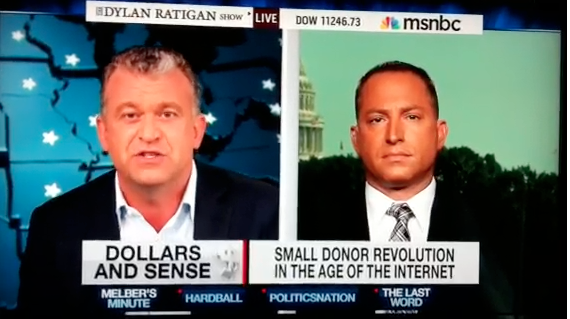Video here. Forward to 9 minute and 25 second part to begin segment.
Crowd Funding for Start Ups
Tuesday, November 08, 2011
SUSIE GHARIB: Another source of funding for small businesses is crowd funding. It’s a way for startups to use the Internet to raise relatively small contributions from a large number of people. The only problem is that securities’ regulations severely limit the ability to crowd fund. But as Darren Gersh reports, Congress is on the way to changing that.
DARREN GERSH, NIGHTLY BUSINESS REPORT CORRESPONDENT: Find a friend with extra bars of gold in the basement — that’s the traditional way entrepreneurs fund a business. But for those who don’t have a rich uncle, there is what’s called crowd funding. Crowd funding is a strategy to raise small sums of money from many people, even people all over the country.
JASON BEST, CO-FOUNDER, STARTUPEXEMPTION.COM: It really democratizes the ability to raise funds for your business.
GERSH: Jason Best is lobbying Congress to pass legislation making it legal to crowd fund. The bill he backs allows entrepreneurs to raise up to $1 million, $2 million if companies provide audited financial statements. Entrepreneurs would not have to go through the expensive process of registering their shares with the Securities and Exchange Commission or state regulators. In a given year, investors can pitch in a total of up to $10,000 or 10 percent of adjusted gross income, whichever is smaller.
BEST: This is an opportunity for entrepreneurs and small business people, whether they are in Arnold, Nebraska, Detroit, Michigan or Miami, Florida, to be able to raise capital for their ideas and to build their businesses.
GERSH: To combat the kind of fraud that brought down Enron, Congress has tightened accounting rules, making it harder for companies to go public. Entrepreneurs like Idealab’s Bill Gross say crowd funding will provide cash before venture capital and the chance at an initial public offering comes along.
BILL GROSS, CEO IDEALAB: At this first stage, when a company is just getting going, this could be a big boost to getting a company to go from, say 10 people or five people to 50 people and to first revenues or even first profits. And I think that’s going to be really helpful to the economy.
GERSH: But state securities regulators like Heath Abshure say crowd funding will lead to crowd fraud.
HEATH ABSHURE, ARKANSAS SECURITIES COMMISSIONER: The fact is, it is a wide open gate that a lot of folks can run through and some of those folks, we don’t want them running through the gate.
GERSH: But supporters say the Internet will help police the crowd.
BEST: Anything that happens is posted to the web almost in real time. Anything that goes wrong or right is posted to the web in almost real time. And so, the crowd will be a great enforcement tool, along with regulators at the state and Federal level.
GERSH: The idea of crowd funding is attracting an unusual crowd in Washington. The president, House Republicans and House Democrats are all on board. Now, the idea just needs to find a backer in the Senate. Darren Gersh, NIGHTLY BUSINESS REPORT, Washington.





